‘Volatile’ voters planning to switch parties at next election
One in three voters say they are prepared to switch parties at the next election, according to a new poll. HAVE YOUR SAY
National
Don't miss out on the headlines from National. Followed categories will be added to My News.
One in three voters say they are planning to switch parties at the next election, with voters preparing to flip their votes between the two major parties, or to minor parties and independents.
A national survey of more than 4000 voters shows 33 per cent of those surveyed are planning to abandon the party they backed last time.
Labor’s voters were the most rusted-on, with 85 per cent planning to vote Labor again. Five per cent said they would vote Coalition this time, while another three per cent would move the Greens.
The Coalition’s voters were a bit more restless, with 74 per cent planning to stick around, while a relatively high 11 per cent planned to vote Labor next time. In the unlikely event that figure was replicated at next year’s election, it would spell disaster for the Coalition.
Seven per cent of Coalition voters say they don’t know who they would vote for.
A handful of Coalition and Labor voters say they intend to vote for the new United Australia Party this time.
The party, backed by mining magnate Clive Palmer’s millions, is cashed-up and heavily backing its one Parliamentary member, Craig Kelly, who holds the seat of Hughes in NSW after being elected as a Liberal.
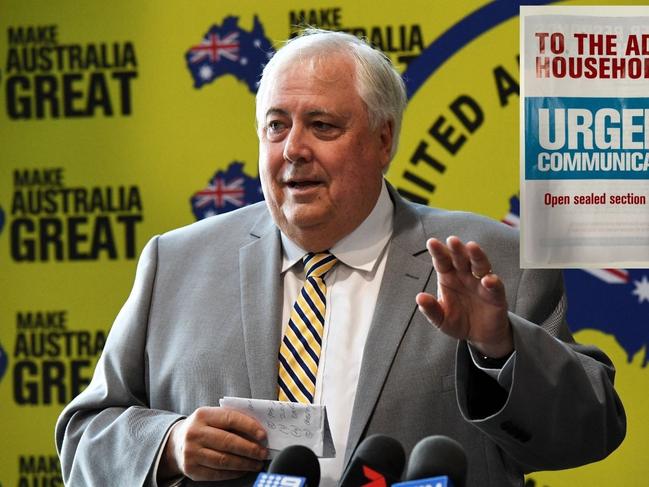
The UAP has a strong anti-vax, anti-lock-down, anti-vaccine passport platform, and is attracting support from those opposed to Government-imposed Covid mandates.
The survey of 4010 people, conducted by Ergo Strategy for News Corp Australia, shows most of the UAP’s support would come at the expense of a rival conservative party, Pauline Hanson’s One Nation.
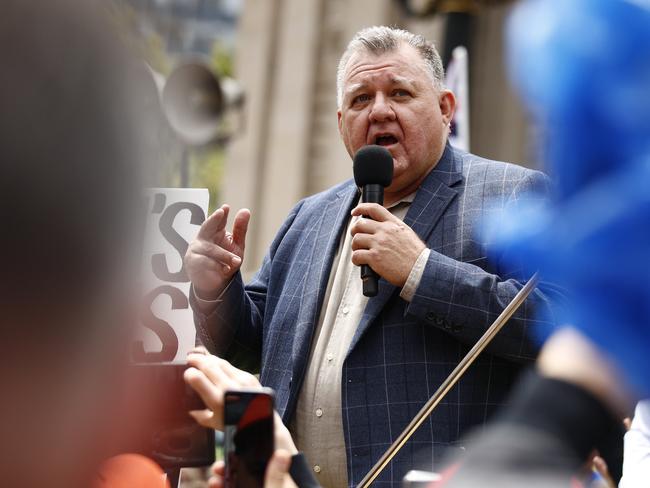
While survey numbers for One Nation voters were low, they show the party would retain 67 per cent of its voters, with eight per cent bleeding off to the United Australia Party, nine per cent to Labor and seven per cent to the Liberal-National Coalition.
The survey, conducted from September 10-23, also shows 56 per cent of those planning on switching parties were female voters, and were more likely to be living in a single or double income household with no children, renting or living with their parents, and more likely to be earning less than $60,000 a year.
Sarah Cameron, political scientist at the School of Social and Political Studies at the University of Sydney, said Australians had become increasingly dissatisfied with major political parties over time.
“It used to be the case that most voters would vote the same way every time,’’ Dr Cameron said.
But in recent years the electorate had become “much more volatile’’ and voters were more likely to vote for a different party than the one they had supported in the past.
Dr Cameron said this made the election campaign period much more important than it used to be.
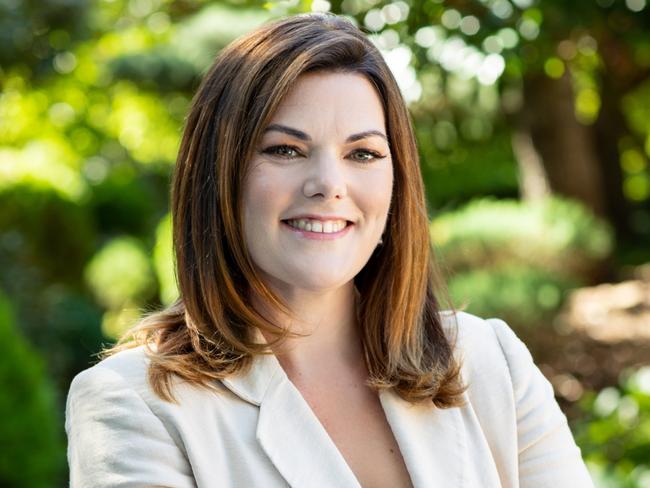
“In 2019 a record high of 21 per cent did not align with any political party,’’ she said.
“The proportion of voters that consistently vote for the same party has declined to 39 per cent of the electorate in 2019 (down from 63 per cent in 1987).
“This disaffection with major political parties paves the way for independents and minor parties to attract votes. At the same time, the COVID-19 pandemic may undermine this long term trend as many look for stability and security at a time of crisis.’’
The Ergo Strategy survey also showed the Greens would hold on to 77 per cent of their voters, but 12 per cent would go to Labor and three per cent would go to the Coalition.
A large number who voted independent last time don’t yet know who they will vote for.
A total of 59 per cent said they would stay with an independent, but Labor has picked up 10 per cent of that vote, while 13 per cent still don’t know.
NEW IDEAS APPEAL TO YOUNG VOTER
Fergus Smith has voted Labor at each election since being old enough to cast a ballot, but the 21-year-old says he is open to switching parties.
The Brunswick man said while he wouldn’t vote Liberal next year, he was considering a switch to an independent party or the Greens.
“I would absolutely look to the Greens first if I didn’t vote Labor. Beyond that I’d prefer an independent because I like the idea of fresh faces and new ideas,” Mr Smith said.
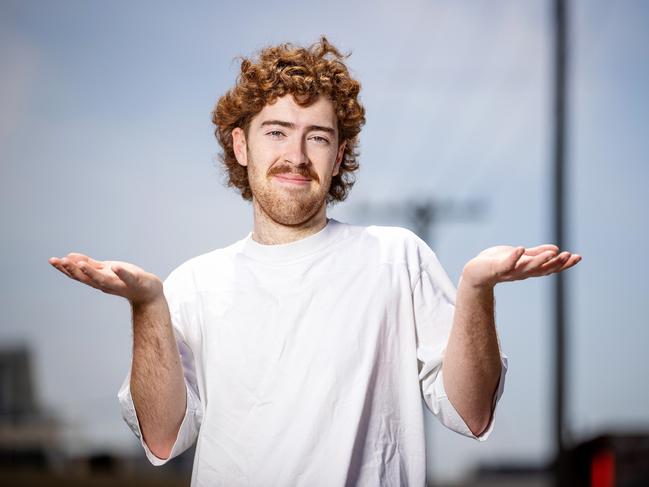
“Another thing that would make me want to vote for a particular party is if they prioritise a shift towards renewables and making those technologies more affordable to regular people.”
Mr Smith said he opted for a major party in the past because of their “bold campaigns” and strong messaging, whereas he thought the small pedigree of an independent party was a drawback.
“There is entrenched stability in voting for a major party because everyone knows the message for Labor and Liberal,” he said.
Mr Smith added he was also looking to vote for a party who was “more upfront about wanting to tackle climate change in a way that’s possible”.
“The idea of an ALP–Greens coalition would be a great compromise because Labor is one of those larger parties that can garner a lot of seats and the Greens can find a middle ground that people like me would go for,” he said.
LIFELONG SWING VOTER BIDES HER TIME
Toowoomba local, Shirley Newman who will turn 71 on December 9, said despite being brought up in a “Labor Party household” she has been a swing voter for as long as she can remember.
“I have voted both ways my entire life but I often base my decision on the particular candidate for each party,” she said.
Ms Newman is “inclined” to vote for the Liberal party when there is a federal election but will often evaluate her decision once the government is elected.
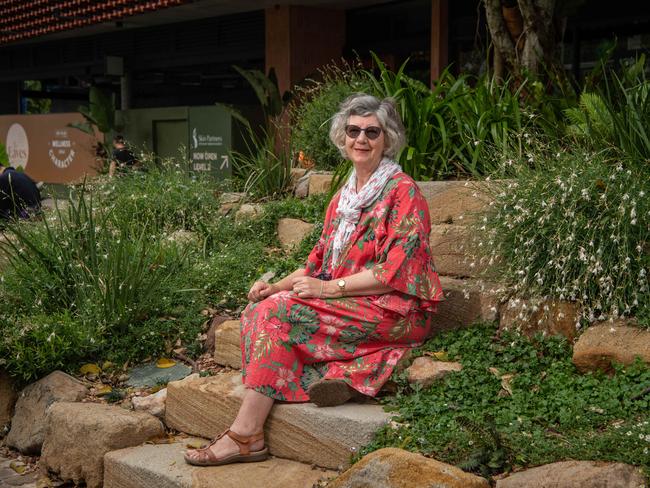
“In the last federal election I voted for the Liberal party but I will probably vote Labor next year.
“I have based my decision for next year’s federal election on how the current government has performed and particularly what was promised but not necessarily delivered,” she said.
A couple of years ago Ms Newman said she was talking to a member of the Liberal party about how she “sits on the fence”, to which the MP responded “the fence can get a bit sharp if you sit on it for too long”.
“I would argue that swing voters are extremely important – we are the people who can change the government.”
Ms Newman said her three adult children have a similar political position to her despite having “very different careers”.
“My children have each chosen very different paths in terms of their career (policeman, social worker, small business owner) but what they do have in common is understanding of how important it is to constantly re-evaluate your political standing.”
Originally published as ‘Volatile’ voters planning to switch parties at next election





